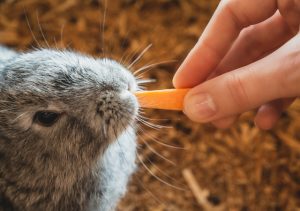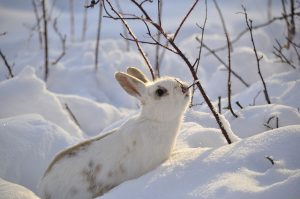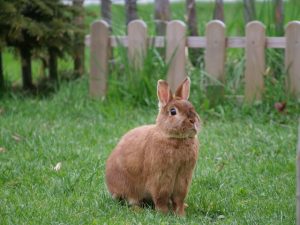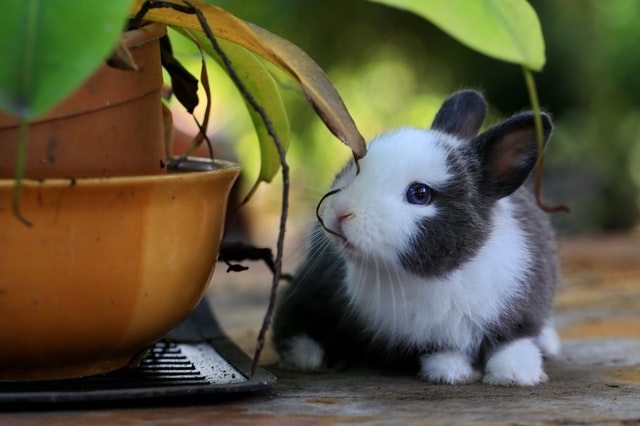
Contents
Rabbits are gorgeous animals, there is no doubt about that. Rabbits, like other animals, need to have balanced diets. The balanced diet included Timothy hay, fresh greens, kibble and certain vegetables. Not all vegetables are good for a rabbit, just like all greens are not good for a rabbit. This would also mean that not all grasses are something that a rabbit should eat daily.
Fresh and clean drinking water is something that you should also be supplying all day everyday. Contrary to popular belief, and cartoons. Rabbits should not be eating root vegetables such as carrots too frequently. Carrots and fruit should be given as a special treat only once in a great while. Not on a daily basis.
What is wheatgrass?
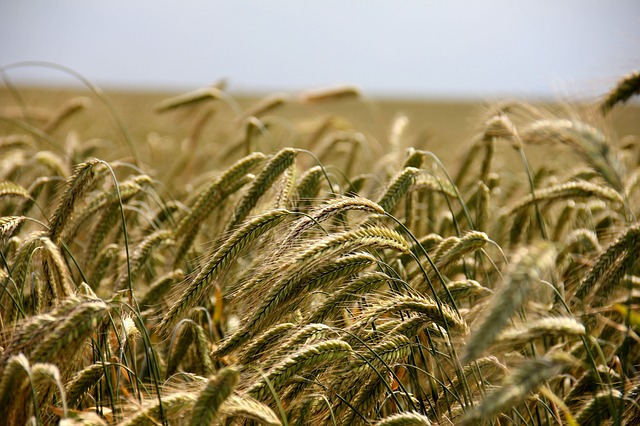
Wheatgrass are the first sprouts that begin to grow on the normal wheat plant. These sprouts can be used for making drinks, as a food source or a dietary supplement. The wheatgrass is good for humans and rabbits.
Wheatgrass is loaded with nutrients and vitamins. Although it does have all this nutrition packed into it, your rabbit’s digestive system cannot handle a sudden change in the diet. The wheatgrass should only be given for a couple of minutes, while in the growing tray. This would be a special treat. Not part of a standard diet.
Wheatgrass is a type of hay, not bread or grains. Wheatgrass does not have as much fiber as Timothy hay. Wheatgrass also is not the type of hay that is going to work on wearing the teeth down for your rabbit. Remember, one of the main reasons they have hay is to contain the growth of their teeth. If their teeth start to grow too much, this is going to lead to dental issues for your furry rabbit.
Another reason to not switch out the Timothy hay with wheatgrass is there is far less fiber in the wheat grass. This could be detrimental to your rabbit’s digestive system, teeth and also his or her digestion. When you want to give a good mix of types of foods to your rabbit, stick with 3 to 5 different types. Never, ever, remove the Timothy hay from the menu though. That is one of those necessary foods your rabbit must have!
If rabbits are left to run out in the yard, be sure there are no grass types or weeds growing that could be harmful to your rabbit. They will attempt to eat anything that looks good to them and that is not always going to mean it is a safe food for their systems.
There are so many warnings out there about the rabbit’s diet, I really hate to add to that growing list. However, it is a must. Always speak to your vet when considering adding or removing something from your rabbit’s diet. There are many important factors to keep in mind when it comes to the food that should be had and given.
For instance, a pregnant rabbit may require more of certain foods, if not all of them. An older rabbit still needs to have the Timothy hay. As humans, we may think that it is harder for a rabbit to chew as they get older. One thing to remember, When a rabbit is gnawing on the Timothy hay, it is helping to keep the teeth from over-growing and becoming painful. That along with the nutrition that they can get from it, it is a mandatory need.
Contrary to what we watched on cartoons growing up, and even now on television, rabbits do not and should not consume too much in the way of root vegetables. Carrots really are not a favorite food as we were led to believe when we were younger. In actuality, root vegetables should only be given as a treat and very seldom at that. Root vegetables can actually lead to root decay and some serious health issues.
What to know before you get a rabbit
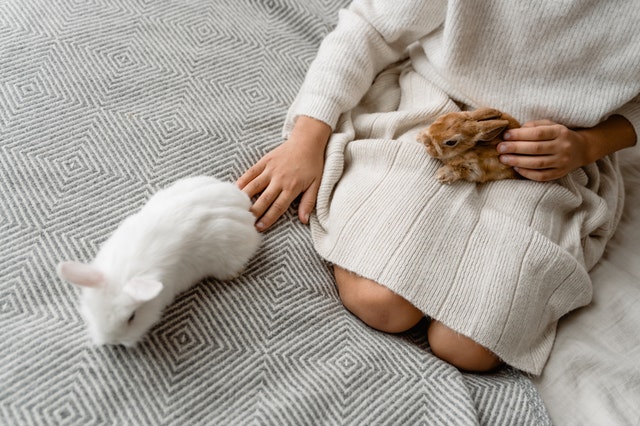
The Rabbits diet is important to understand. If you do not know ahead of time what is okay to feed your rabbit and what will hurt your rabbit, you could be causing the rabbit serious health issues immediately. Another item that many owners seem to think is acceptable to be feeding their rabbit is leftover table scraps of salads and fruits.
Do to the types of leafy greens that are not helpful to a rabbit, this is not a good suggestion, at all! Iceberg does contain some stuff that is harmful to your rabbit. They should not be given iceberg lettuce at all. Cabbage, green and purple is something that all rabbits love! The crunch of the leaves, the fiber is not the best, but, all in all the rabbit should only have small amounts of cabbage also. The cabbage builds up gases in the digestive tract and can cause immense pain for the rabbit.
All this talk about not giving the rabbit carrots, I skipped over an important aspect of that. The tops of the carrots, the green leaves that come out the top, Yes, your rabbit can safely have those. The same as the radish tops. However, for lettuces and green leafy vegetables, stick with Romaine, Bibb, Arugula and red leaf lettuce. But again, always remember, a good quality hay, such as Timothy hay should always be the main food.
As a matter of fact, 80% of a rabbit's diet should be hay, the remaining 20% can be a mix of pellets, herbs, greens and allowable vegetables. Collard greens are a definite minimal amount! The clover and dandelions that grow in our yards may seem pretty, sometimes smell nice, but these are something that should only be given sparingly to your rabbit. Any more than a little amount and there may be health issues for your rabbit.
Something else you should know
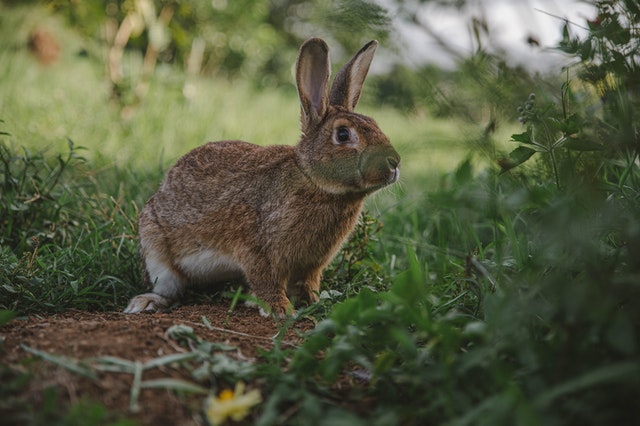
Always be sure there is a constant supply of fresh water available for your rabbit. That is just as important for your rabbit as the Timothy hay is. If you have questions and cannot find answers regarding caring for your rabbit, what is safe for your rabbit to eat and what is not, please contact your vet before feeding your rabbit something that you are unsure of.
According to the main Rabbit Associations, there are on average, only 8% of rabbit owners who know what to feed their rabbit, what is okay and what is dangerous. As prospective owners, wouldn’t you want to be prepared and have all the proper food and treats ready for when you welcome your Rascally Rabbit home?
Rabbits do not naturally eat cereals or fruits when in the wild. When you do have the leafy greens and other foods ready, be sure to wash them properly. This includes the herbs and weeds that they munch on also. Be picky and look closely, especially if you happened to walk outside and picked a handful of grass. There could be some poisonous weeds in the mix that will do damage to your new pet.
A helpful piece of advice, you know those clippings from when you cut grass? Yes, those that lay all over the yard, do not feed them to your rabbit. They could be seriously harmful to the digestive system of a rabbit. Any sudden changes to a rabbit's diet can be harmful to the digestive system and the overall health of your rabbit.
Safety reminder
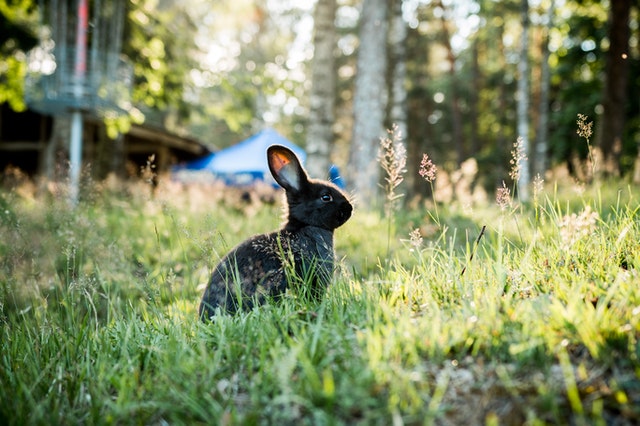
The quantity that you should be feeding your rabbit should be discussed with your vet. They can tell you how much a rabbit should be eating for their age, size, sex and if the are pregnant or not. Overfeeding will cause obesity in your rabbit which will lead to many other health issues.
Too little food and your rabbit is not being given the amount of nutrients and vitamins, or minerals that they need.
By watching how much fecal matter they are leaving, you will be able to determine a little about the rabbits health. For instance, if they have soft matter that sticks to their bum, call the vet, this could mean that there is a serious issue with the rabbit.
A rabbit will drop two types of fecal matter, it will either be hard pellets, or it will be soft lumps. They will automatically eat the soft ones, as these are a dietary need for rabbits. So if you see your rabbit eating off it’s bottom, please leave him or her be. This is built in nature and instinct for them. They understand why they do it, we do not need to know. I believe it is to return nutrients and minerals back into the system.
Wheatgrass is what should be considered a special treat only. Do not leave a whole tray of wheatgrass in the hutch for your rabbit. That would be too much at one eating.


